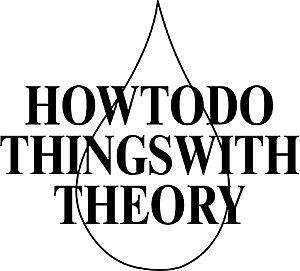2023-2024 Ana Teixeira Pinto's seminar: Mean Girl Theory
The seminar is conceived and offered by Ana Teixeira Pinto
The seminar from Confluence to Confluence
Seminar participants second year: Lena Pfäffli, Louis Schou-Hansen, Meii Soh, Sille Kima, Stephen McEvoy and Gloria Sogl.
Seminar participants first year: Davide la Montagna, Jafar the Superstar, Eszter Dobos, Maria Miguel Pratas and Christelle Makris.
Mean Girl Theory
INTRODUCTION:
In 1999, the French collective Tiqqun published Preliminary Materials for a Theory of the Young-Girl, which the authors described as “A theoretical dissection of capitalism's ultimate form of merchandise: the living spectacle of the Young-Girl.”
In his essay “Little Shopgirls Go to the Movies” (1927), Siegfried Kracauer asks to what extent are ideologies gendered, yet lays the blame for “stupid and unreal film fantasies” at the feet of gullible and complacent young women.
This year’s seminar Mean Girl Theory will revisit Tiqqun’s writings, as well as other iconic criticism of capitalism that come into the world dripping from head to toe, from every pore, with misogyny, in order to examine the age-honoured habit of personifying social ills as female, and feminizing the “Orient.”
We will look into the structuring role of gendered metaphors in Western epistemology, starting with the opposition between matter and spirit, and the connotation of matter with corruption, contingency and death. We will also look into the sexed stakes in the philosophical antinomy of materialism vs. idealism.
We will examine the gendering of affect and “ugly feelings” like envy, greed or jealousy (Ngai, 2007).
We will survey the historical feminization of gay masculinities.
We will look into histories of excess, and how the culture of modernization mobilised gender to render “other cultures, other narratives, other peoples as “obsolete,” irrecuperable, or unhistorical” with their identities marking a departure into some other realm: the mythic, the religious, the spiritual, the arcane, the folkish—all of which are presumed to be somehow opposed to or irreconcilable with the historical, and the political (Makdisi, 2003).
We will look into the witch as a representation of female empowerment and pop shorthand for “feminism.”
We will examine the Marxist conflation of labour (a social relation mediated by the wage) and work (the creation of artefacts that can radically transform the social and natural world), which ties work to a narrative of emancipation, leading left wing theorists to construct the female consumer as the ultimate capitalist product/project.
We will watch Mean Girls, the movie, for no good reason.
Possible readings:
Jasbir Puar. Terrorist Assemblages: Homonationalism in Queer Times. Durham: Duke University Press, 2007.
Todd Shepard. Sex, France, and Arab Men, 1962–1979. Chicago: Chicago University Press, 2007.
Durba Mitra. Indian Sex Life: Sexuality and the Colonial Origins of Modern Social Thought. Princeton: Princeton University Press, 2020.
Saree Makdisi. Romantic Imperialism: Universal Empire and the Culture of Modernity. Cambridge: Cambridge University Press, 2009.
Sianne Ngai. Ugly Feelings. Cambridge, MA: Harvard University Press, 2007.
Sianne Ngai. "Jealous Schoolgirls, Single White Females, and Other Bad Examples: Rethinking Gender and Envy." Camera Obscura 16, no. 2 (2001): .
Jack Halberstam. Gaga Feminism: Sex, Gender, and the End of Normal. Boston: Beacon Press, 2013.
Tiqqun. Preliminary Materials for a Theory of the Young-Girl. Chicago: Semiotexte, 2012.
Jean-Joseph Goux. Symbolic Economies, After Marx and Freud. New York: Cornell University Press, 1990.
Lauren Berlant. The Female Complaint: The Unfinished Business of Sentimentality in American Culture. Durham, NC: Duke University Press, 2008
Georges Didi-Huberman. Invention of Hysteria: Charcot and the Photographic Iconography of the Salpêtrière. Chicago: MIT Press, 2004
Marie-Hélène Huet. Monstrous Imagination. Cambridge, MA: Harvard University Press, 1993.
Jonathan Ned Katz. The Invention of Heterosexuality. Chicago: Chicago University Press, 2007.


